Recently, a group of businesspeople visited institutions, business councils and governmental offices in Guatemala with Türkiye’s Foreign Economic Relations Board (DEIK). These businesspeople represent companies from several sectors, such as telecom technologies, precious metals, private education and energy. The significance of this visit lies in its being the first of its kind, as it is the first organized council visit to Guatemala by Türkiye.
Guatemala is a country that most Turkish people might not even be able to point to on a map at first glance. Yet, it is located at the heart of one of the most significant civilizations of the Americas, the Mayans. This cultural heritage hidden in Guatemala is an important reason why the country has the potential to fulfill its destiny, just as the Turkish leader and the founder of the Republic of Türkiye, Mustafa Kemal Atatürk, said for his nation: “The strength you need already lies within the noble blood in your veins.” The role of cultural heritage in economies is more than a romantic or idealistic message; it has a practical function in mobilizing a nation to achieve great things. This cultural heritage triggers Guatemala’s healing movement from the economic uncertainties, unemployment and social problems it had left in the previous century.
Guatemala, with a population of over 17 million, is one of the largest markets in the region. According to the central bank and the Ministry of Agriculture, Fishing and Food of Guatemala, the backbone of the country’s economy consists of textiles, clothing and service sectors. The country is one of the prominent textile and clothing providers for the U.S. Additionally, Guatemala has free trade agreements not only with the U.S. but also with Panama, an important center for clothing wholesale and Mexico, a country with a population of 130 million, a gross domestic product (GDP) of $2 trillion, and a growing apparel sector according to the data obtained from the world bank.
These dynamics highlight Guatemala as a key player, especially for the textile and apparel manufacturers of Türkiye, as they have been seeking viable ways to expand their presence in North America without dealing with crushing customs taxes or unfeasible logistical costs.
Sharing technology
The visit by the business council from Türkiye is not limited to the objectives of one or a few sectors. In fact, it is a pioneering and path-building action for many other sectors and companies to follow, in line with the founding vision of the DEIK. Within the scope of the visit program, meetings were held, bringing together bureaucrats, businesspeople and representatives from the mutual business councils of both countries. The vice minister of foreign affairs of Guatemala also expressed that the common desire of all the delegations involved in the talks is the deep aspiration for integration between the two countries and the will that is required to achieve it.
The textile and apparel, valuable metals and technology sectors seem ideal to launch active collaborations. Türkiye has achieved groundbreaking projects, especially in the tech sector, over the last 20 years. Technology and qualified human resources have been the key elements behind the success of the banking, telecom, automotive, white goods and textile sectors of Türkiye.
One of the factors that could create a leap forward for Guatemala’s economy, which has made strides in various sectors over the last 15 years and is driven by an active desire for growth, is the sharing of Türkiye’s technology and accumulated sectoral know-how in a way that ensures mutual benefit.
As a management consultant, I believe mutual benefit is the key to Turkish companies’ success in Latin American countries.
Textile, apparel sectors
The textile and apparel sectors of Türkiye have been growing and expanding since the 1970s and are known for their high-quality products by our international stakeholders. Türkiye has the sixth largest apparel sector in the world, according to the data published by the Ministry of Trade of Türkiye. However, Türkiye has not yet achieved its full potential in terms of global recognition. Yet, Turkish companies and the government have been putting significant effort into elevating Turkish brands to the desired level of recognition and perception in the eyes of end consumers.
Most well-known Turkish textile companies have been targeting the U.S. to reach end consumers but face many obstacles. The U.S. is also at the top of the target export markets list published by the Turkish Ministry of Trade. However, Guatemala offers access to a wide range of foreign markets without customs taxes, thanks to its free trade agreements. This not only enables Turkish investors to reach North America but also growing markets like Mexico, Panama and other Central American countries.
Currently, the Apparel and Textile Association of Guatemala (VESTEX) states that the country has a workforce of over 200,000 people employed in the textile sector, specialized suppliers, logistics partners and generous incentives, and laws that support the investments. This makes Guatemala a potential production hub for Turkish investors who wish to succeed in both Central and North American markets, particularly those aiming to reach the growing middle and upper-middle class, which has expanded due to industrialization in Latin America.
The collaboration between Türkiye and Guatemala holds immense potential, particularly in the textile, apparel and technology sectors. Guatemala’s strategic location, free trade agreements and growing economy make it an ideal partner for Turkish companies seeking to expand their presence in the region. Türkiye’s advanced technological expertise, industrial know-how and high-quality textile products can significantly contribute to Guatemala’s economic growth while creating mutual benefits for both nations. By leveraging Guatemala’s workforce, incentives and market access, Turkish investors can overcome challenges like high customs tariffs and logistical costs, paving the way for long-term success.
This partnership not only strengthens economic ties but also fosters cultural and diplomatic relations, aligning with the vision of the DEIK and the aspirations of both countries. Together, Türkiye and Guatemala can achieve remarkable growth and set an example of international collaboration rooted in shared goals and mutual respect.





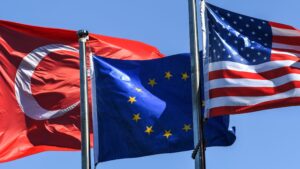
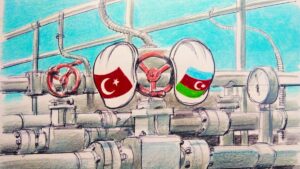


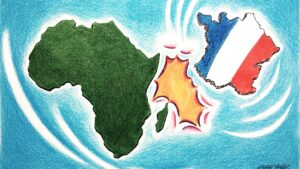



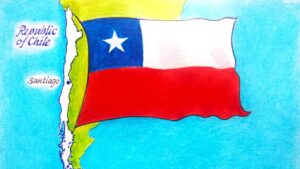














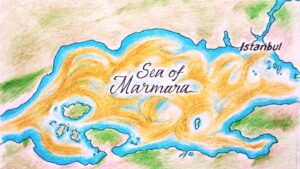


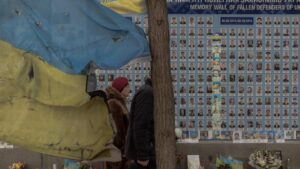



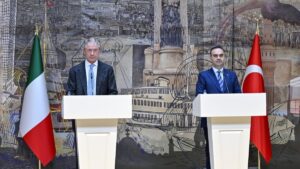


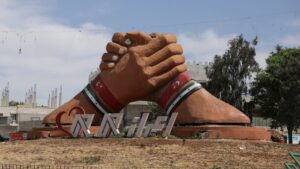




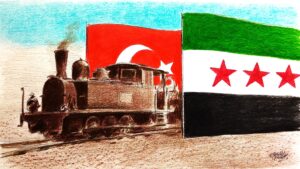

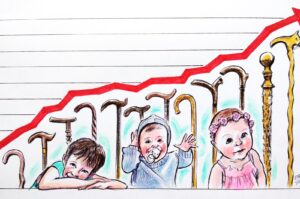


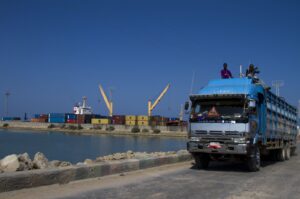
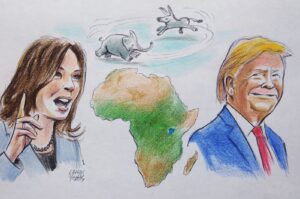


Be First to Comment